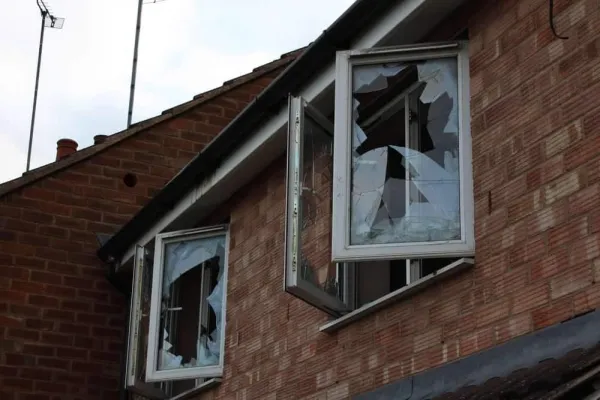Mortgages are the most significant loans most people ever take out.
They make it possible for millions across the UK to buy a house.
But getting a mortgage comes with stringent checks.
How easy is it to get a mortgage?
Most people can get a mortgage.
However, how much you can borrow depends on many different factors.
You may be denied a mortgage if you’ve declared bankruptcy in the past few years.
This could also happen because you’ve got a terrible credit score. Or you’ve got too many other loans out – either with the same bank or in general.
Your salary typically determines the amount that a bank will lend you. You can usually borrow between 4 to 5 times your annual salary.
For example, if your salary is £30,000, you can borrow between £120,000 to £150,000.
Your deposit will need to cover the remainder of the money for the house you buy. Otherwise, it’s not in your price range.
You could also buy with someone else and get a joint mortgage. Your combined income allows you to borrow more.
What do I need to get a mortgage?
A lender will need a reasonable credit score to grant you a mortgage.
Some apps and websites allow you to check your score. And if it is poor, you can improve it.
The application process also requires you to have the following documents.
Proof of ID
The lender wants to ensure that they know who you are. A driver’s license or passport is sufficient for this.
Proof of address documents
Once again, your driver’s license or passport will do the trick.
Your lender will want to know where you’re currently living. They may also ask how long you’ve been there.
Evidence of where your deposit is coming from
All lenders are responsible for checking this.
They’ll want to know the source of your funds. For example, have you saved it up, or received an inheritance?
This comes hand-in-hand with money laundering checks. If it’s a gift from someone else, they may need to put it in writing.
Proof of income
This is useful for ensuring you can meet the ongoing monthly payments.
In your lender’s opinion, your monthly income should comfortably make this doable. A bank statement is usually fine.
Proof of expenses
Even if you’ve got a large income, this isn’t helpful unless your expenses are low.
Otherwise, you don’t have much money to work with! A bank statement can show this.
This will factor into whether the lender thinks you can afford the monthly payment.
How long does the mortgage application process take?
On average, it takes around 4 to 6 weeks.
This can vary though, depending on the lender, your solicitor, the clarity of the documents you provide, the type of mortgage, and more.
The type of mortgage you are getting may require additional steps, too.
For example, if you are applying for a joint mortgage, your partner must also complete these steps.
Equally, if you have a guarantor on your mortgage, then this will result in extra measures.
Does it cost money to apply for a mortgage?
Some lenders charge a ‘Mortgage Booking Fee’. This is a small amount you pay to get a mortgage offer arranged.
This is somewhere between £100 to £200 in most cases.
Before you spend any money, speak to your lender to determine exactly how much it will cost. You can then budget accordingly and know what to expect.
What if I can’t afford a mortgage?
If you are unable to afford a mortgage, all is not lost. Alternative routes are available to you that enable you to get onto the property ladder.
Shared ownership is a scheme running in the UK that allows you to buy a share of a property and continue paying rent on the rest.
You own a smaller amount of equity and build it up over time.
You can do something called staircasing, which allows you to buy more shares in the property until you (in an ideal world) eventually reach 100%.
Some other financial support initiatives that you can benefit from include a 100% mortgage, in which you borrow the entire value of the house.
Or a guarantor mortgage, in which someone offers to take over your mortgage repayments if you fail to meet them.
It is also worth considering moving in with someone else.
This generally makes it more affordable to get onto the property ladder because your combined deposit and salary enable you to get a larger mortgage.
How long does a mortgage offer last?
Your offer is usually valid for between three to six months. Confirm this with your lender if you’re unsure.
Do I need a solicitor to get a mortgage offer?
While it’s not a legal requirement, many experts recommend getting support from a solicitor.
This ensures that you don’t make costly or time-consuming mistakes.
It’s natural to feel nervous otherwise, especially if you’ve never done this process before.
Am I allowed to negotiate on my mortgage offer?
You can try, but not all lenders are open to this.
In many cases, the offer is based on strict calculations and formulas. The lenders often can’t deviate from this.
You can take steps to make an improved mortgage offer more palatable. This includes getting a guarantor or increasing your salary.
Do you need a mortgage to buy a house?
You can buy a house in cash if all the funds are available.
This means that a mortgage isn’t involved. But unless you’ve got all the funds, a mortgage is needed.
















